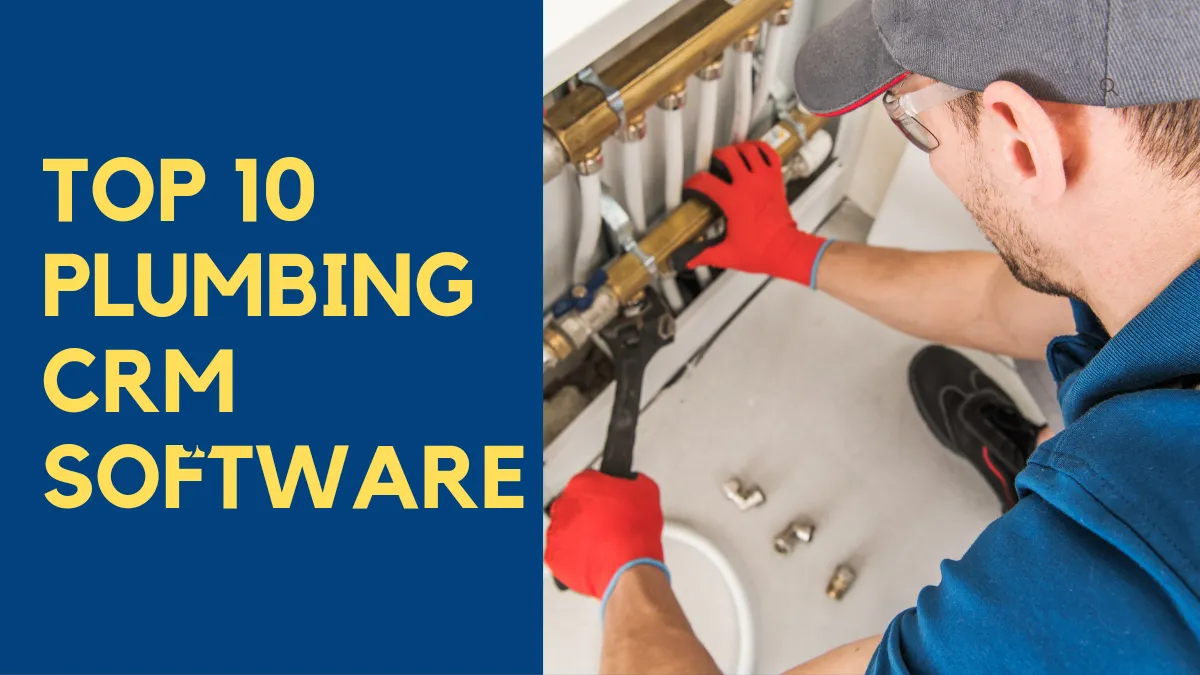Looking for customer relationship management software that is designed for plumbing businesses? There are many alternatives available to aid with tasks like scheduling, invoicing, and client connections.

Best Plumbing CRM Software in 2024
Nutshell: It provides features like lead information gathering, tailored emails, and customer and lead management with an intuitive interface, making it ideal for small and medium-sized enterprises.
Commusoft: Notable for its user-friendliness, it consolidates client information and offers capabilities such as automated reminders and plumbing inventory software.
FieldEdge: Designed specifically for plumbing companies, it provides a database management system, software for dispatching plumbers, and integrated payment processing.
Housecall Pro: The program’s stated goal is to facilitate the expansion of home service companies through the monitoring of client data and the enhancement of operational efficiency.
Knowify: Integrated with QuickBooks for efficient financial management, specializing in work costing and project management for contractors.
Sage CRM: It works in tandem with Sage accounting software and offers full-featured solutions for managing customers.
Sera Systems CRM: Provides a number of options, such as scheduling, invoicing, and customer management.
Zoho CRM: A widely used customer relationship management system that offers a variety of features and the ability to personalize them to the needs of businesses of any size.
Pipedrive: Impressed by its user-friendliness, it provides robust lead generation capabilities and adaptable project management.
HubSpot: With its extensive set of integrations, it offers a plethora of tools for sales, marketing, and customer service.
What is plumbing CRM software?
A specific tool for plumbing organizations, CRM (client relationship management) software helps with managing client interactions and business operations more efficiently. This platform integrates numerous features such as project management, scheduling, billing, and customer care. This system allows for the central storage of a plumber’s client data, appointment details, invoices, and more. The end goal is to increase revenue by simplifying operations and making customers happier.
How can I choose the right CRM for my plumbing business?
To make sure the software fits your unique requirements and can expand with your plumbing company, there are a number of things to think about when selecting the best CRM. You can make a well-informed choice by following these steps.
Assess Your Business Needs: Think about scheduling, marketing, invoicing, or customer management as some of the primary issues you’d like the CRM to solve.
Must-Have Features: Find out what features are absolutely necessary. Contact management, work scheduling, billing, task management, and automatic reminders are common aspects of plumbing CRMs.
Budget: Think about your budget for a customer relationship management system. Everything from the most basic to the most sophisticated systems is accessible, so there’s something for every budget.
Ease of Use: Your workforce should be able to quickly and easily learn how to use the CRM. This guarantees a seamless acceptance and deployment process.
Scalability: Pick a customer relationship management system that can grow with your company. As your company expands, it should be able to manage more complicated processes and a larger customer base.
Integration: If you already use other software, like accounting or email marketing, you should look for a customer relationship management system that connects effectively with it.
Customer Support: Verify if the CRM service provides dependable client assistance. It is important to have good help when you first set up the system and learn how to utilize it.
Reviews and Recommendations: Find a plumber you trust by reading reviews written by previous clients and by asking around for referrals. You may learn a lot about the benefits and drawbacks of various CRMs from their experiences.
Free Trials: Prior to committing, make use of the CRM’s free trials to evaluate its features and compatibility with your company’s operations.
What are the key features to consider when choosing a plumbing CRM?
Make sure it fits your operational demands by considering these important aspects when you select a customer relationship management system for your plumbing firm.
Efficient Customer Management: The goal of a customer relationship management system (CRM) is to provide informed and personalized customer service by providing a single location to store and manage customer information, service history, invoicing details, and contact details.
Appointment Scheduling and Dispatching: Better time management and customer satisfaction can be achieved by utilizing a customer relationship management system that simplifies task assignments, appointment scheduling, and service call tracking.
Estimating and Invoicing: For smooth operations, it is crucial to be able to swiftly create estimates and invoices and keep tabs on payments.
Marketing and Communication: Automating messages like appointment reminders, service updates, marketing materials, and follow-up emails is a great way to create and sustain relationships with customers using a strong customer relationship management system.
Customer Feedback and Reviews: To swiftly resolve issues and enhance services, choose a CRM that can collect feedback from customers.
What are some common challenges in implementing a plumbing CRM system?
Several obstacles may arise with the implementation of a plumbing CRM system. These are a few typical ones.
Resistance to Change: If employees are satisfied with the current system, they might be reluctant to transition to a new one.
Data Security and Privacy Concerns: A new customer relationship management system must have strong security features to guarantee the protection of client data.
Integration with Existing Systems: It might be a complex procedure to ensure that the CRM integrates properly with the present business software.
Data Quality and Migration: It could be challenging to transfer existing data into the new CRM system, especially if the data is not clean or standardized.
User Adoption and Training: Employees can’t make good use of the new CRM system without proper training, which can slow down adoption.
Cost Management: Costs associated with the CRM system, including software, training, and maintenance, can be difficult to budget for.
Technical Complexities: It takes a lot of time and knowledge to install the technical parts of a CRM system, such as customizing and configuring it.